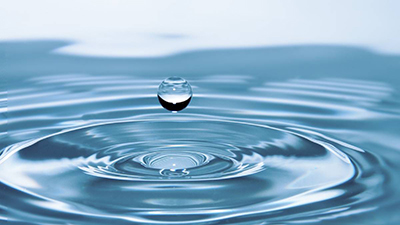 By Aviva Bock, CCMHC, LMHC
By Aviva Bock, CCMHC, LMHC
Many years ago, my friend Jane married in her late thirties and was not surprised when she was not able to conceive a child — after all, the information all said it was harder for older mothers to conceive — so she and her husband grieved and then applied to adopt a child. No sooner did they receive the information that a baby had been found for them than Jane realized she was pregnant.
We probably all have heard stories like this one. Rather than focusing on success stories like this, I want to explore the connection of mind and body in conception, and how the beliefs that we carry about ourselves and our bodies can affect our physiology. Unfortunately, our Western medicine models have often separated mind and body rather than understanding them as deeply intertwined states of being.
“The mind body connection is far from a myth; it is a biological fact and an essential link to understand when it comes to our whole body health.”
~ Dr Emeran Mayer author of The Mind-Gut connection
Until recently, Western medicine has focused its attention on diagnosing and treating symptoms, rather than learning about the human being(s) in whom the symptoms are manifesting and investigating their root causes. We now know with good scientific evidence that our emotional life, the feelings that we carry, the losses we have endured, and the challenges that we experience throughout the course of our lives, impact our entire being – biologically, physiologically, and emotionally.
The study of epigenetics reveals that gene expression itself carries not only physical attributes of our parents but their emotional experiences as well. Traumas, major stresses, and losses suffered by our parents or grandparents can impact our biology in the womb itself and subtly impact our body/minds. The good news is that we now also know is that the body/mind is way more plastic than we had ever imagined and the very way our genes express themselves can be changed. Mind and body working together can have a huge impact.
Knowing this, before you decide you cannot conceive a child, ask yourself about the state of your body, illnesses you have experienced, challenges that you may have endured, anxieties that you carry, the depression that you or your family have had, the losses you or your family have experienced, and most importantly the beliefs that you hold about your body and your relationship to your body. Become aware of how you and your family have handled fear, vulnerability, death and loss, stress, etc. Know that your own birth story, the experiences of your early childhood, and the relationship you have not only to your family but also to your body are among the many now known factors that, from both a physiological and psychological view, can play a role in your ability or inability to conceive.
So while you may be tempted to start immediate treatment, seek out second opinions, or start testing procedures, I would urge you to seek out a functional medicine physician or a psychotherapist who looks not at symptoms but at root causes. The key is finding someone who understands that biology, chemistry, and psychology are completely intertwined each with the other. You owe it to yourself to educate yourself about the emotions that you carry and some of your own history and how that may or may not be affecting you now as you embark on this next chapter of desiring to become a parent.
The women in the success stories we hear, each for their own reasons and family history, carry some burden of doubt regarding their abilities to conceive. Once that agenda is off the table, and they no longer carry the stress of believing that they are destined not to be able to conceive children unassisted or even at all, those parts of them that carry the burden of those beliefs are able to relax and they can sometimes conceive with no effort. Our emotions really can affect the chemistry of our bodies and, in turn, the ability to conceive.
However, we all know there are no guarantees in fertility, so if after checking root causes, detox, and emotional readiness nothing changes, then we can focus on being grateful that other options do exist and that the joy of parenthood still can be available to us.
Aviva Bock is a holistic integrative mind/body psychotherapist with over 30 years of experience. private practice is in Newton Center, MA. She has been a teaching associate at Harvard Medical School for over 10 years. Her undergraduate degree is from the University of London, and she has advanced degrees from Harvard and Brandeis Universities. Aviva is a member of the Association for Prenatal, Perinatal Psychology and Health. APPPAH has been quick to embrace the latest findings related to early development and how the very early beginnings from conception through birth can influence the development of physiology and psychology throughout the life span.
